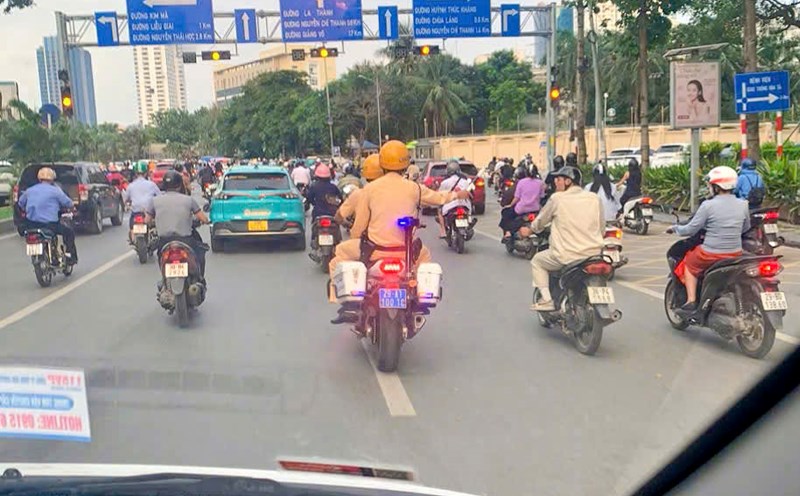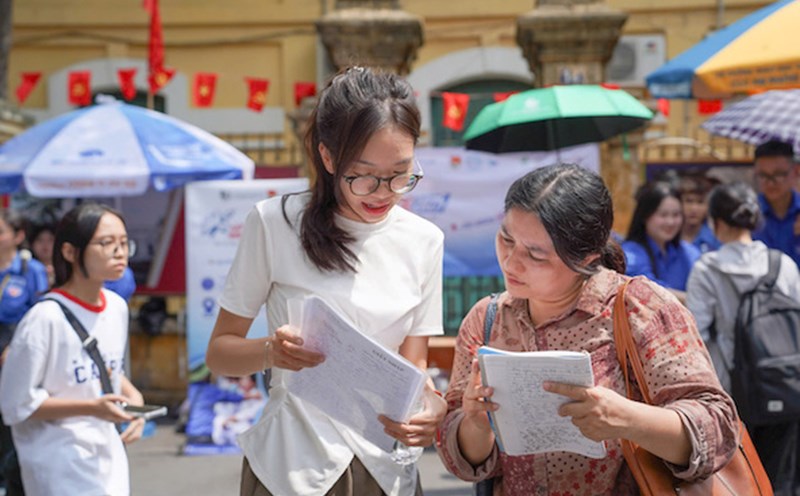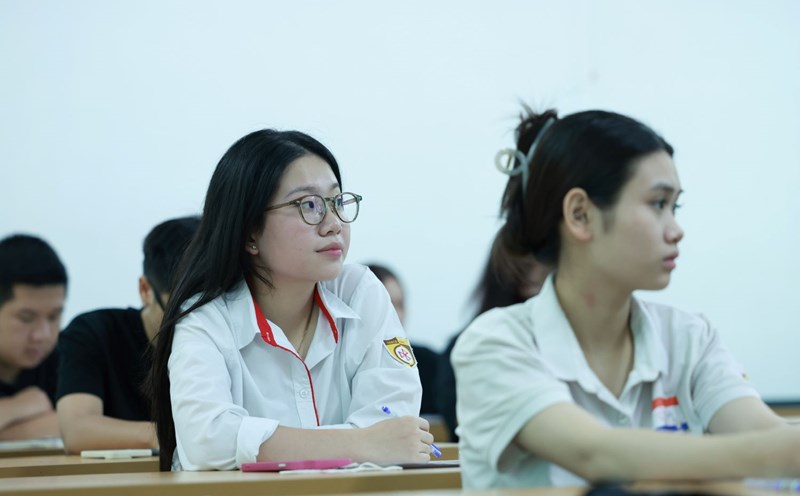At that time, it was around 10am, so I couldn't call T back, so my friends went quickly to find T's child in the neighboring area, from Ha Cau to Van Phu - Ha Dong. At nearly 11 o'clock at night, T. texted the group: "I have found my child, thank you for the whole family".
T. has 3 children, one of whom is over 10 years old and is unfortunately disabled, unable to speak. Later, T. said: "When we lost our children, our family was very panicked. Fortunately, someone caught and took him home. I have to find a way to prevent this from happening again.
The story of lost children seems to have happened a lot in the past, when communication was limited, there were no social networks. Unexpectedly, such information is still occasionally available.
For example, on July 10, at 10:00 p.m., the police of O Dien commune (Hanoi) received a report from residents of cluster 10, O Dien commune about the discovery of a girl about 14 years old lost, showing signs of fear, having just fallen off an electric motorbike into a ditch. Immediately after receiving the information, O Dien Commune Police approached and brought the child and the vehicle to the headquarters to ensure safety. A few hours later, when his spirit was stable, the child said his name and temporary residence in Hy Cuong commune, Phu Tho province.
Or before that, on July 3, the Patrol and Control Team of Duong Hoa Commune Police received a report from local residents about two children getting lost in the Yen So Park area (Duong Hoa Commune, Hanoi). The two children (9 years old and 6 years old) said they were brothers, lived in Xuan Phuong area and went to Duong Hoa commune to study extra classes from the morning of the same day by bicycle. However, because they could not remember the way back, the two got lost and wandering around the park area.
The above stories raise the question: How should children be managed in the context of an increasingly complex modern society? Because this can happen to any family with young children.
It is easy to see that the common point in the cases is the temporary disconnection between children and adults, whether they are parents, teachers or guardians. In that situation, fortunately, the local commune police force, people and acquaintances promptly approached, supported and helped the children return safely. However, we cannot rely forever on the "good reflex" of the authorities when the role of prevention should have started from each family and school.
For young children, especially between the ages of 6 and 14, the ability to handle situations, remember trips, communicate with strangers... is still limited. Many parents are too subjective, letting their children go to extra classes, use personal vehicles, do not supervise or do not equip their children with skills to handle lost places. Teaching children to remember basic information such as parents' phone number, home address, school name, ability to call adults to confidently help... must be given top priority.
Limiting lost children is not only a personal story of each family, but a common responsibility of the whole community. Children need to be loved, cared for and taught practical survival skills.
Don't let each lost trip become a lucky test between safety and danger. And remember, small actions - such as asking a child who seems confused and promptly reporting to the police - are also the way every adult contributes to protecting the future of the child.











